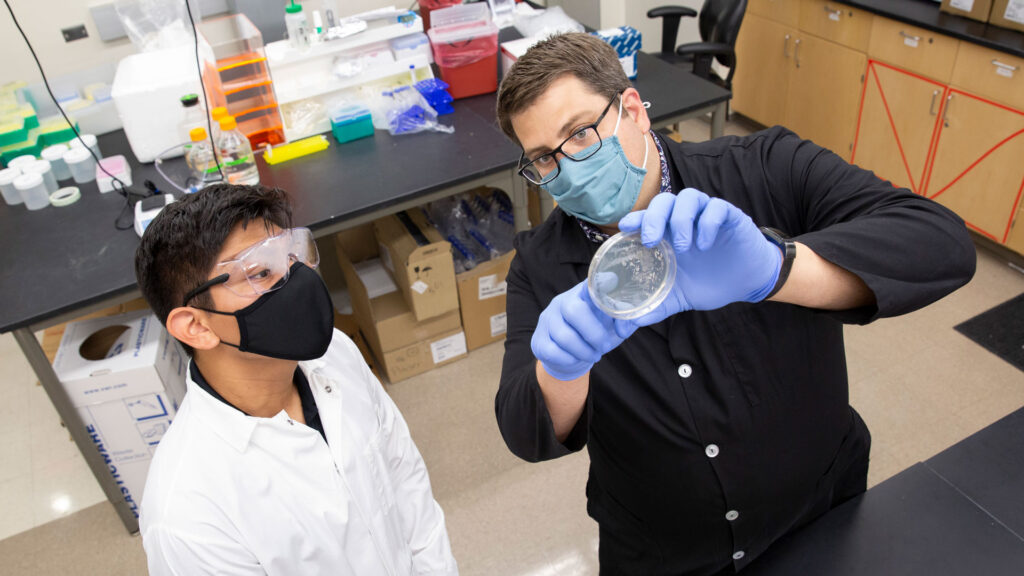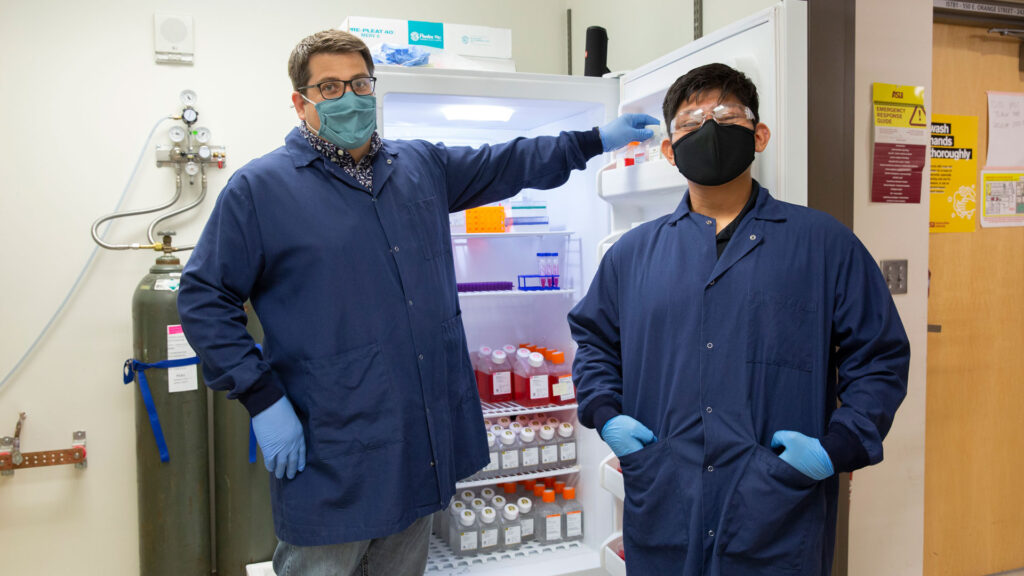Q&A with faculty mentor Christopher Plaisier
Posted on: October 29, 2021
Posted on: October 29, 2021
Christopher Plaisier, an assistant professor of biomedical engineering, has been mentoring FURI and MORE students for three years. His work focuses on genetic research for discovering diagnostic and prognostic biomarkers and new drug targets. In his lab, Plaisier trains his students to be cross-disciplinary researchers.


What made you want to get involved as a FURI faculty mentor?
Undergraduates are at the start of their professional careers. Any skills and experience they pick up now will considerably impact their growth into biomedical engineers. Mentoring undergraduate students through FURI allows me to train the next generation of interdisciplinary engineers who can tackle the big problems we currently face.
What is your favorite part about seeing your students conduct research?
In a classroom, students learn the basic principles that will make up what they will likely undertake in their careers. Researching real-world projects puts those principles into action and brings home why those ideas are so important. This contextualization of ideas is a fundamental step in learning, and it always amazes me how meaningful these experiences are.
How have your student researchers had an effect on your research? Have they come up with any research surprises or proposed new directions for your lab?
The FURI students in my lab have pushed forward an immunotherapy angle that was not initially part of my research plan. The results have been very impressive, and we are gearing up to conduct some validation studies shortly. Additionally, a FURI student has pushed forward a website for our mesothelioma gene regulatory networks that will be released as soon as the manuscript on that work is published sometime next year.
What have you gained from being a FURI mentor? How has the experience been rewarding for you?
I benefited greatly from mentors who took the time to teach me the practical side of research. This extra training beyond my undergraduate studies has been instrumental in my success. I hope to foster an environment where students can gain research skills and experience. I enjoy training, mentoring and working with undergraduate students. The FURI program has helped me to retain students from first-years to seniors. It is rewarding to see each student grow in knowledge, experience and confidence and see how they apply themselves after graduating from ASU.
What advice would you give to students who might be interested in participating in FURI or MORE?
Go for it. It is vital for students to learn what research is before they commit to graduate studies. FURI is an excellent opportunity for students to learn whether research is something they would like to pursue in the future. Also, FURI and MORE are great opportunities to learn things beyond what you get in the classroom. For those considering graduate school, you should absolutely apply for FURI. Just find a professor whose research interests you and see if they would support you and apply! The odds are good!
Why should other faculty members become FURI or MORE mentors?
Mentorship is essential for students to find their place in the field of engineering. Faculty mentorship is an investment in the future of engineering and ensures that the field is filled with well-trained, excited and diverse people. We faculty members need to seize the opportunity represented by so many capable undergraduates, and FURI is a great incentive to recruit students into the lab.